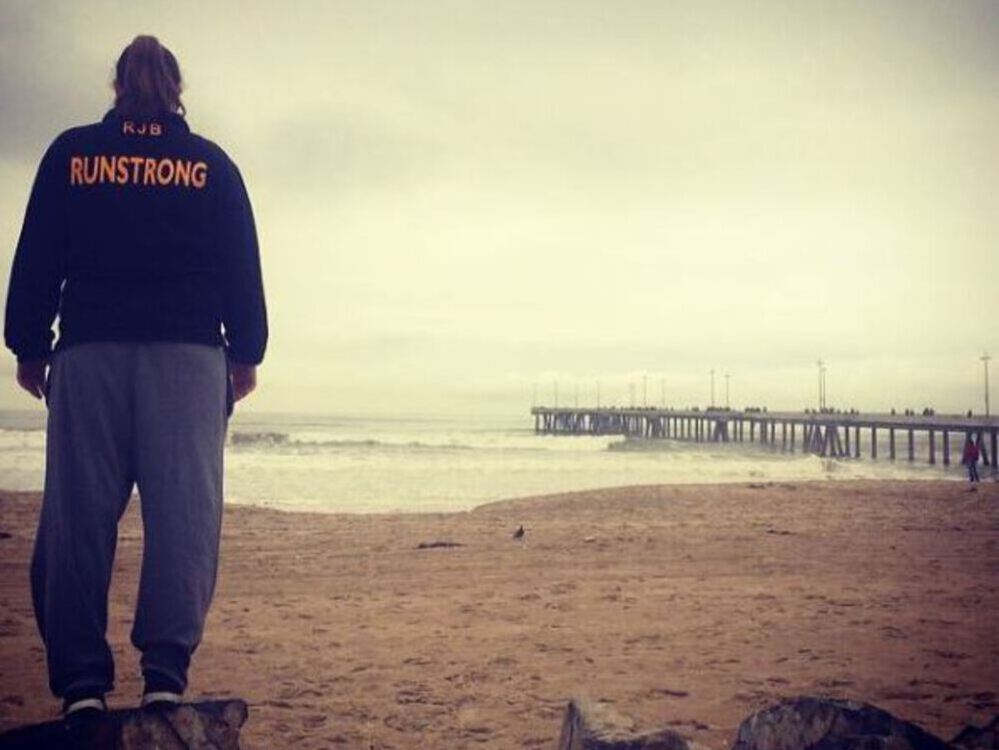You can’t forget something like that. I don’t want to forget it.
I got through it. They might be one or two things you don’t want to see or face again, but it’s one of these things that made me who I am.
It was summer of 2013 when I signed with Hungarian basketball club Uni Gyor. It was my first overseas professional team, after playing college basketball at the University of Dayton.
Earlier, I had signed for the training camp of the WNBA’s former champions, the Seattle Storm, I took my shot and then I was looking forward to compete in Hungary, where I arrived a few weeks later.
On September 7th 2013, our team bus was traveling down a two-lane road to a preseason game in the city of Sopron. Suddenly, we were hit by a car from the opposite lane. From a driver they later said he was drunk…
I have always been very open to talk about it, I am very vocal, because it changed me in a lot of ways.
I am not afraid of that, it happened and, you know, you just have to move on. It’s hard, but you have to move on.
It makes you know where you come from. You just have to hold it.
You look at my then teammate, Serbian Natasa Kovacevic, who had her left leg amputated at the knee.
You look at the two persons who died and other people who got hurt and you’ re just like you got to keep moving.
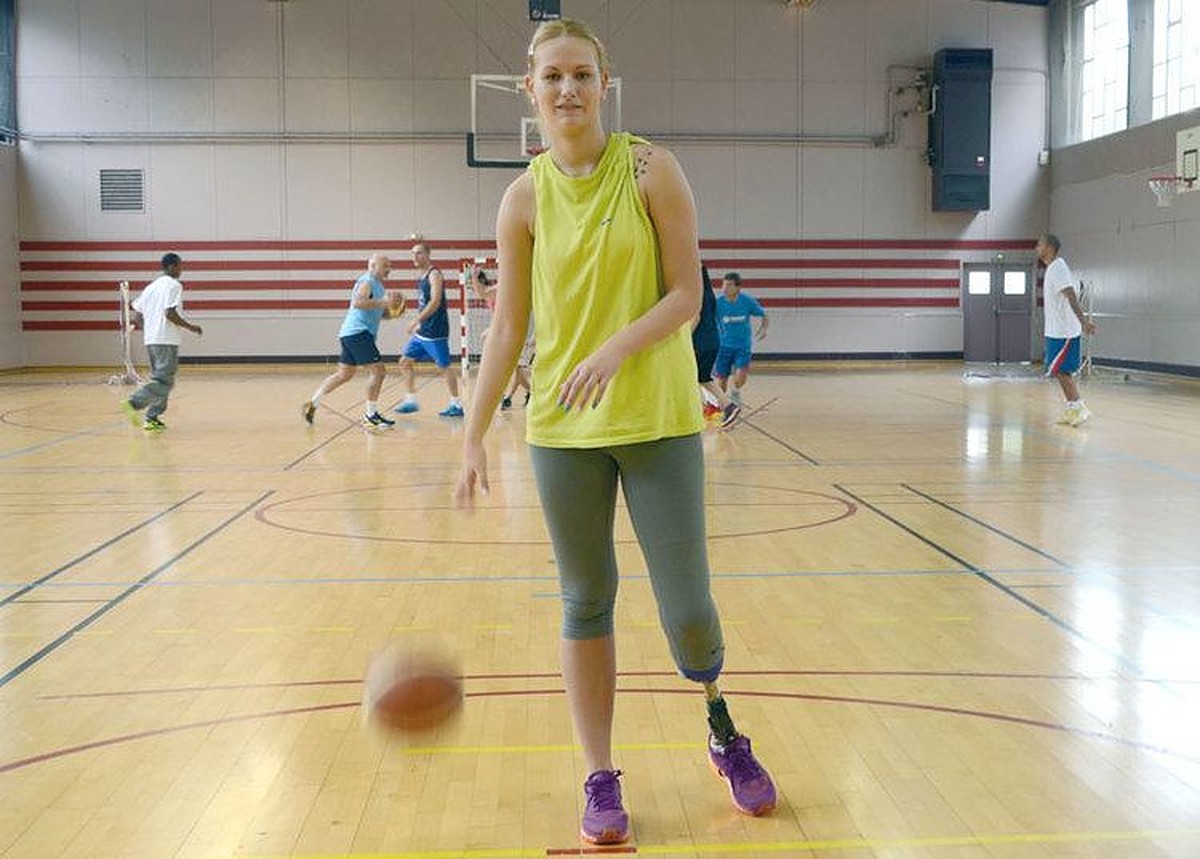
Natasa Kovacevic kept playing basketball in Serbia, with a prosthetic part / Photo by: fiba.com.
I remember the whole incident, because I was not unconscious at any point and I can recall every second of the accident.
Natasa Kovacevic was right in front of me, in the right seat.
For me, I was asleep and when the car hit us I felt it like a tyre popped. That’s the first thing I thought.
The next thing I know is that we started to roll and the thoughts that came to my mind were crazy. That’s normal, when you look at something like that.
One glass hit my eye, I put my hands over my head and then I went out of the window and landed in a ditch watching, as the bus continued to roll…
You see a lot of things that can’t be explained or you don’t need to be explained, but I got to say that many things had to go right for me to be OK and safe.
I didn’t break the glass, I didn’t land in a position to break my neck and, afterwards, I didn’t do anything stupid, moving around, to make the situation worse.
I had the support that I needed all time and somebody up above, I don’t know exactly who, took care of me. Because, obviously I had no control.
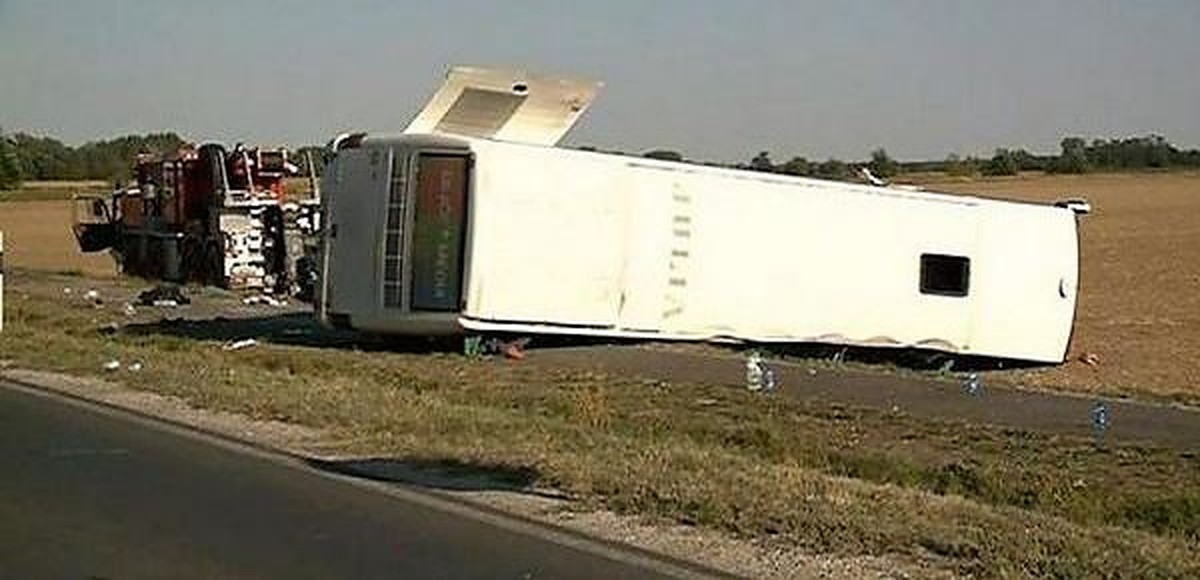
Gyor’s bus, after the crash on September 7th 2013 / Photo by: baschet.ro.
I got three fractures in my neck, in cervical vertebrae C3, C4 and C7 and a couple of broken ribs, a broken foot and a lot of burns over my body…
I tried to get up right away when it happened, because a teammate of mine was bleeding from the head and after she saw the blood she panicked.
I saw her foot and the outside of the ankle, the bone cap, was kind of gone…
So, my thought was to try to cover her foot before she sees the blood.
I started walking to go towards her, but trying to get up and the higher I got on my feet I had that vibrating sensation from head to toe, all the way back to the back of my body. I knew something wasn’t right, but I didn’t know what it was. I could see everything, I could move all my body parts, I didn’t know what has happened to me.
I was in pain but I wasn’t shocked. I couldn’t tell right away what was hurting.
The lower I got to the ground the less the vibrating was and I was actually trying to crawl to her, to find a sweatshirt or something to cover her leg.
Somebody, not a part of our team and I guess a civilian that stopped at the scene, had to stop me and ask me if I am hurt or in pain.
He told me to stop moving, he kindly push me back to the back of the ditch and rolled me over and I didn’t move from that point on.
Other than try to cover my teammate’s ankle, nobody asked for my help and, instead, they were asking me if I am OK.
We were looking each other all around and we were shocked.
And then, my other Serbian teammate, Milica Ivanovic, walked around the bus tried to check if everybody is OK.
In our side of the bus we were all stable. We got some broken ribs, sore necks, but all safe.
Milica, who was one my best friends on the team, passed me my cell phone.
I didn’t know where it came from and she threw it to me.
I told her I am safe and she responded that Natasa in not OK and she thought it was really bad… Milica stayed with Natasa from the point of we know what’s going on until Natasa was in the ambulance and traveled from Hungary to Serbia with her, about a month later.
Our team’s manager, Peter Tapodi pronounced dead at the scene…
He was about eighty feet from me and you could sense the situation. It was pretty obvious that he was gone. He wasn’t moving, he wasn’t breathing.
Our coach, Fuzy Akos was was at the other side of the bus as well. A helicopter came to pick him up but he didn’t make it to the hospital… There are no words to describe the loss.
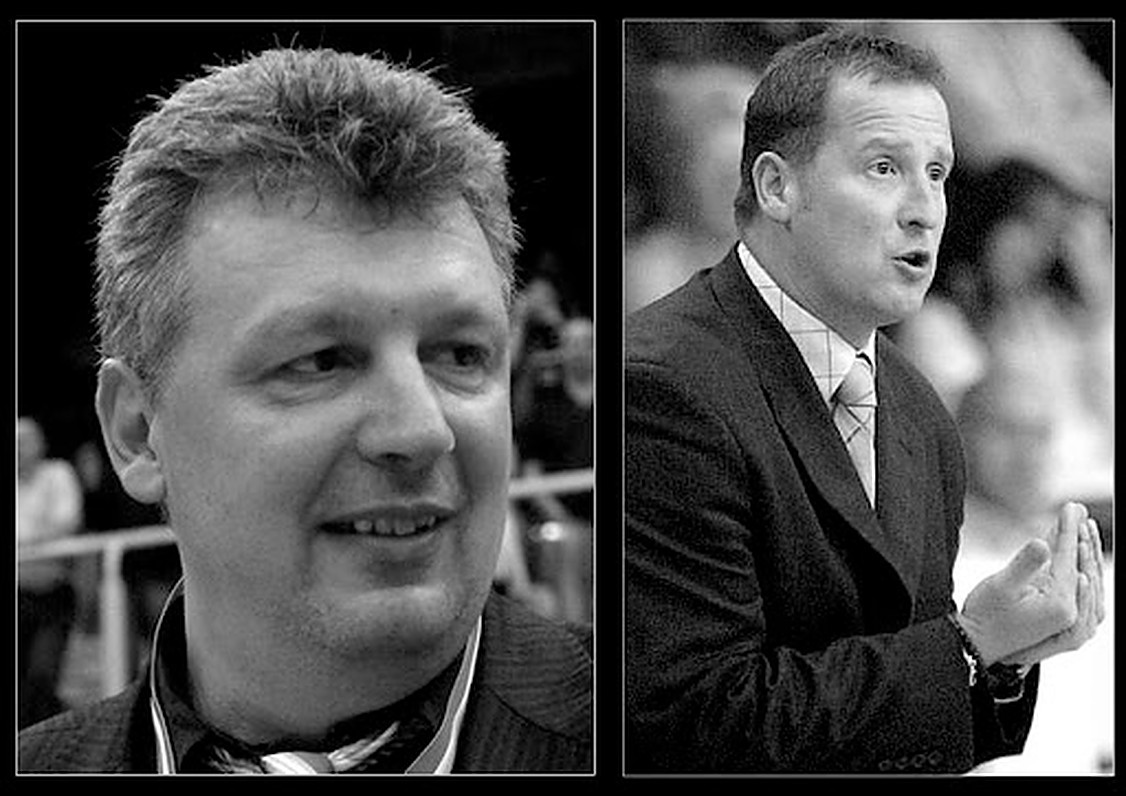
Gyor’s head coach, Fuzy Akos (left) and general manager, Peter Tapodi, lost their lives in the 2013 accident / Photo by: hunbasket.hu.
It was a kind of total blur during the roll.
I didn’t see any flashes or moments of my life in front of my eyes, or anything like that.
Once I was lying in the ditch and I knew I was OK, I looked up at the sky for a moment. Clouds were moving, but other people at the scene were also moving and there was no time to think.
All of us who were OK tried to help others with open wounds.
At the same time, we were wishing that the next person who would push would better not be bleeding.
The things that go through your head are good and bad. Perhaps, for a moment, you instantly think something silly like “oh, my mom is going to kill me”.
You ask yourself “what have I done?” and stuff like that.
An accident like that can take your life or can change your life.
When I graduated college and went overseas to play, all my life was basketball.
On and off court, all of that were things I thought it’s my life. I thought that basketball is who I was.
My identity was my jersey number. But during the time you spent in a hospital or in bed, before they tell you to play again, you wonder “what am I going to do now?”.

Samantha MacKay (right), with her college teammate, Casey Nance, daughter of the former NBA forward, Larry Nance and sister of the current player of the Cleveland Cavaliers, Larry Nance jr. / Photo by: Samantha MacKay – Instagram.
When I finally found out that I can still play, then I had everybody else asking me “what are you gonna do now?”.
It kind of irritated me. Some people reached out to me to offer job opportunities and help me.
You appreciate them, but at the same time you think they cutting you out before you get the green light to be healthy and play again.
All that challenged me to be more than a player and try to reach people in other areas of life. It was fun to be able to talk to people but basketball is still what I do and I didn’t want to throw that away just because of an injury or a fear.
At the end of the day I didn’t have any surgery or major problems and I could get back on the court.
But I realized that basketball isn’t everything and I thought that if I couldn’t play basketball again, I would be alright.
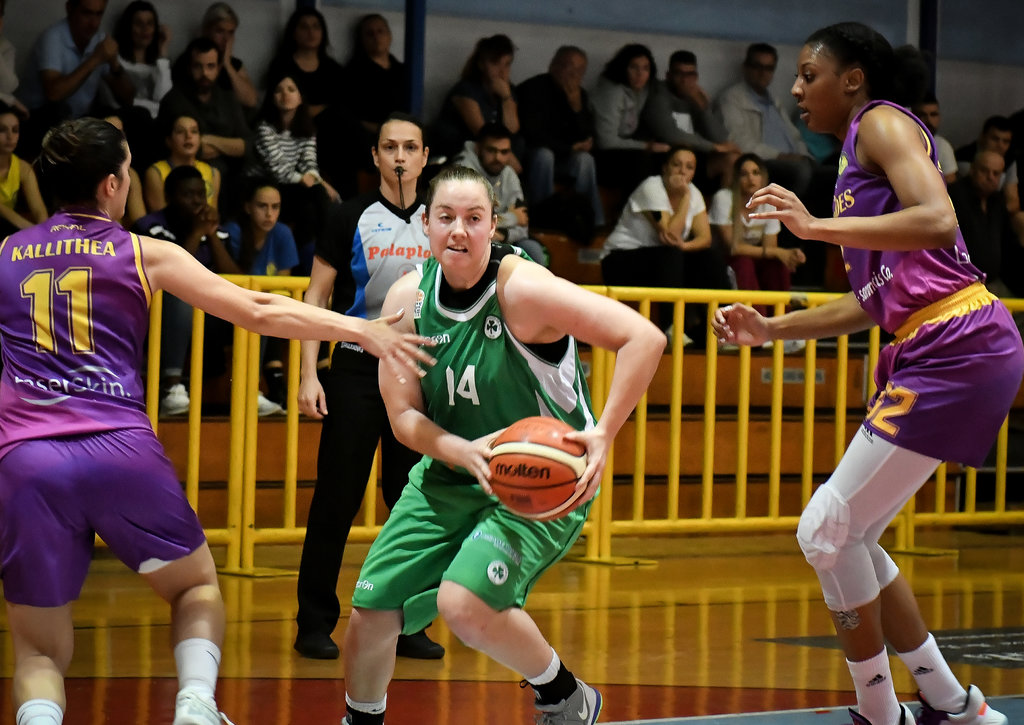
Samantha MacKay between two opponents, during a Panathinaikos BC game against Esperides Kallitheas / Photo by: Eurokinissi (Vaggelis Stolis).
After the accident, they released me from the hospital within 24 hours. I was stable but I had a really big wound on my back.
They equipped me with all I needed to take care of it, and that was the struggle the first couple of days. I was in pain and had to deal with it.
My mom and another friend, my director of basketball operations at University of Dayton, got to me very quickly. My mother travelled from the States and he came from Austria, where he was working in an American school.
It was great and he took care of me for 24 hours, before my mom arrived in Hungary.
I remember even in the first week after the crash, many members of the team decided to make jokes and laugh about everything and anything that they could.
It threw me a little sideways, but I saw that it was their way to get through the pain. That’s not common to where I come from, to make jokes for something so serious.
My mother was hearing the laughs and the jokes and she was like “can they say that? Is it OK to listen to that?”.
It was awkward, but I kind of went with the flow, because inside the team the wanted to forget it quickly. They didn’t know what to do, but they didn’t want to cry about it.
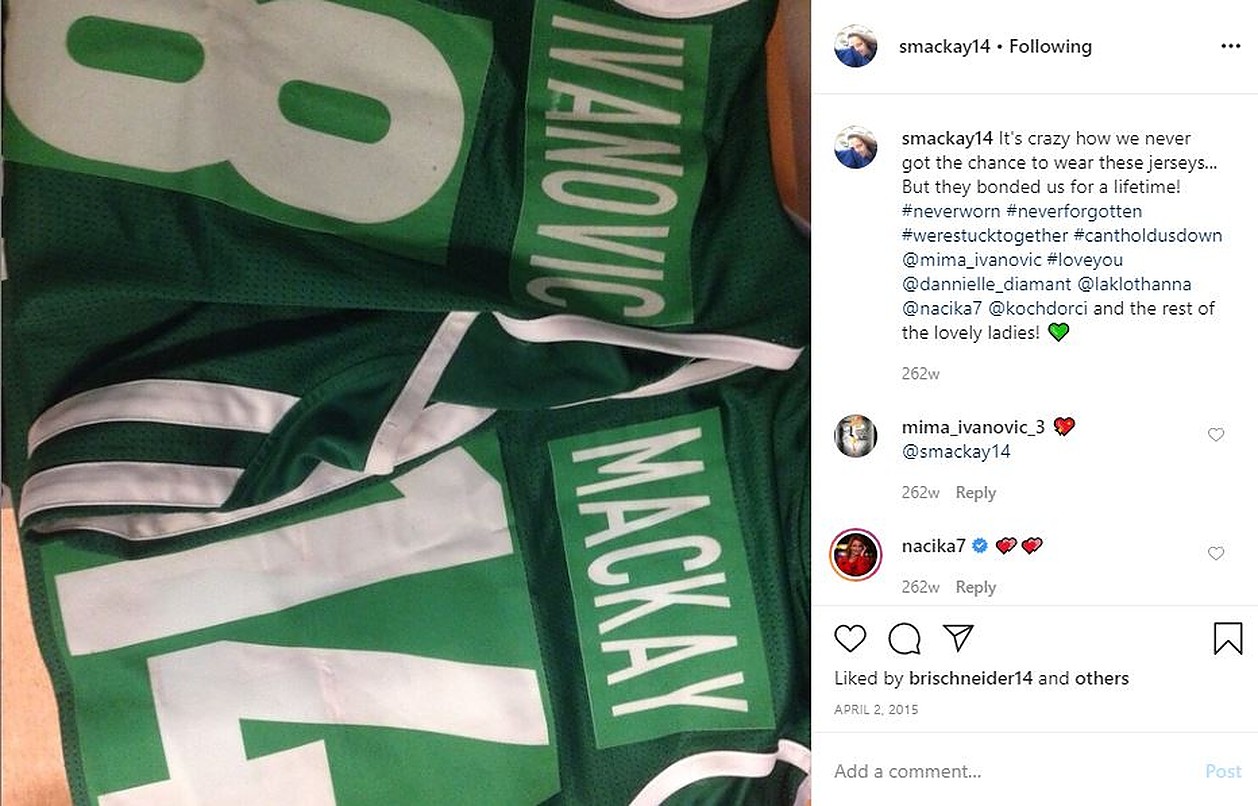
Samantha MacKay’s Instagram post, with the jerseys of hers and the one of Milica Ivanovic, that they never wore in Gyor / Photo by: Samantha MacKay – Instagram.
It took me about a month to get cleared to travel back to the States, after they were sure my fractures at the neck are not getting worse.
It was very hard, physically and mentally to get back to the court.
I got back pretty quickly, but it took me a long time to completely get over it.
You can move away from the accident but there are still things that hurt, things you think about and linger with you for a while. My mentally comeback lasted probably longer than it should have, but in the beginning, with all the jokes and certain people that were so strong, I am thinking now that I never grieved.
It didn’t stop me to move forward. Because that is what we had to do.
It took longer than it should, but I was still functioning in my life.
Physically, my trainer from Dayton, Jaime Potter, came to California and she took care of me.
She planned my work outs, my meals, the rehab, everything. She saved my life.
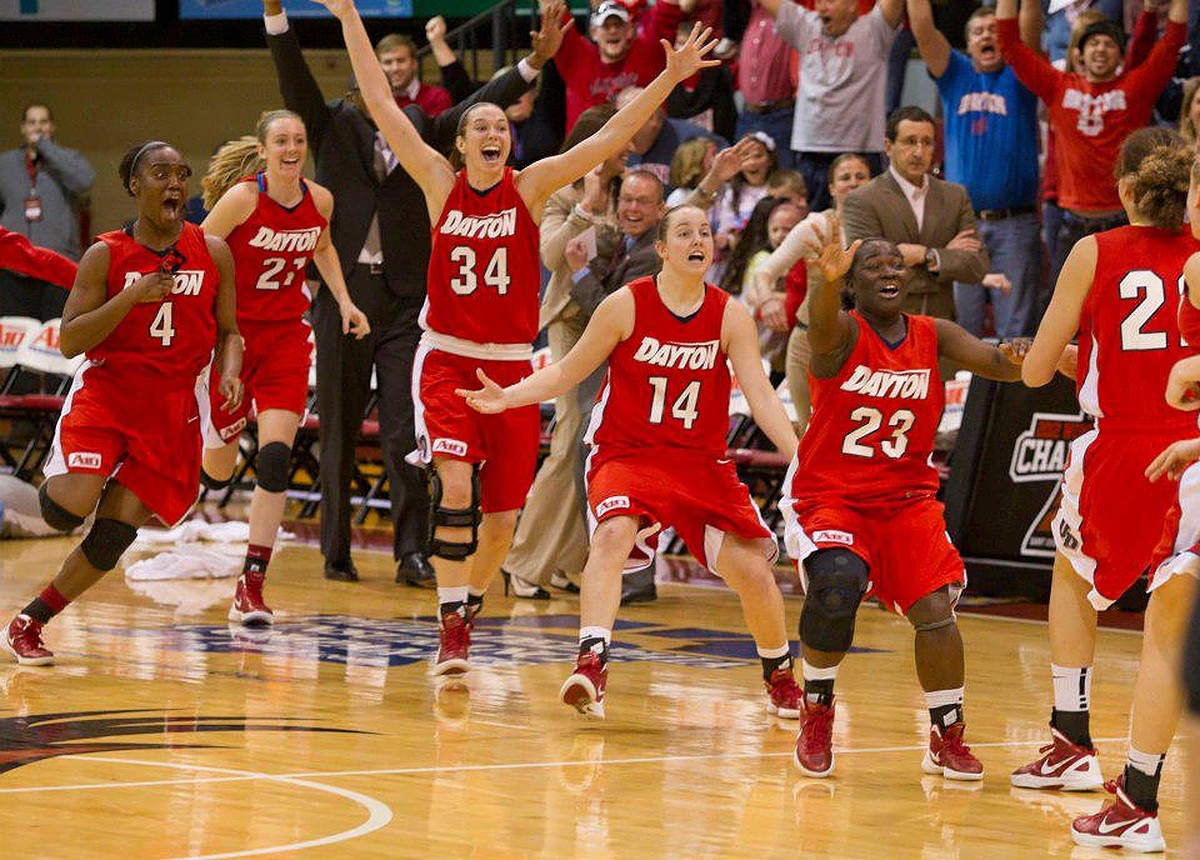
Samantha MacKay (wearing No14) celebrates with her temmmates the Atlantic-10 Conference title in 2012 / Photo by: Samantha MacKay – Facebook.
One year after the accident, I came back to play in Hungary. It was a fake feeling for me. I had been through something traumatic that I wanted to move on from, but everybody understood me. I had no teammates from Gyor, though.
I am still in touch with my former teammates from Gyor.
Natasa Kovacevic and I keep in touch, we congratulate each other on our accomplishments and check and make sure we are OK.
After the crash I became less vocal in the locker room.
I loved to be the leader but each team wants a different type of leader. By the time I got my feet on the ground I wanted to lead, especially in college.
After the accident I became more reserved and basketball was not my only focus.
I took a step back and didn’t want to take it too seriously. I wanted to enjoy it a little bit more and that was positive for me.
I had to deal with that balance, because I wanted to enjoy my life too.
It took me a while to get fully back to “if this is what I want to do, I need to work hard”.
I was always working hard but I wasn’t so focused in the past.
Many of my teammates, learning about the accident, wanted to talk about it. There were others that reacted kind of like “I heard the story but I don’t want to discuss it”.
Perhaps it was something that scared them, made them feel uncomfortable. Or they didn’t want to put me in a strange place.
For me it doesn’t matter. It’s something that I live with, it’s there. But I don’t want to say that it’s a big thing.
As the years go by I realize that it’s healing to talk about it, to get Natasa’s story out.
In the first couple of years I wanted to tell everybody not because “oh, look at me, I am great”.
Mostly, I like to get it out me and tell people not to take things for granted.
Samantha MacKay is a professional basketball player and plays for Niki Lefkadas.
Editor: George Adamopoulos
CHECK IT OUT:
Natasa Kovacevic: “Don’t be afraid of your leap”
Samantha MacKay: “Seeking Balance”

